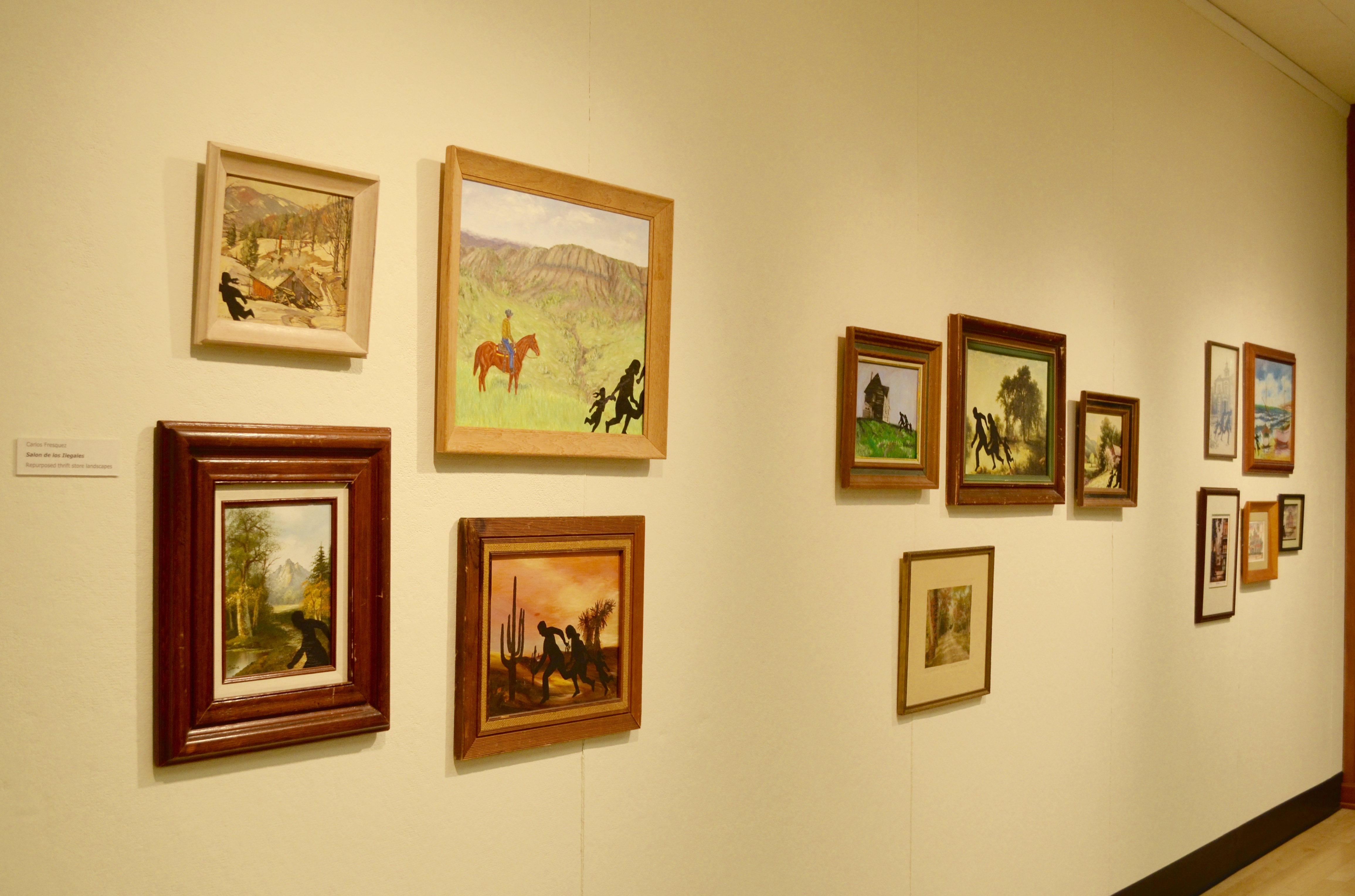By Grant Cayton
Transcript correspondent
ggcayton@owu.edu
From cowboys to cars, from paint to prints– nothing is off limits for this artist.
Carlos Fresquez, Chicano artist and associate professor of painting at the Metropolitan State University of Denver, came to Ohio Wesleyan University on April 2 and spoke with students about his artistic experiences. A exhibit of Fresquez’s paintings entitled “Desde Aqui, Desde Alli” was also presented in Beeghly Library. Fresquez’s lecture discussed various moments of his life that inspired his artwork, and how his art in turn affected his life.
An extremely important moment to Fresquez occurred on Sep. 16, 1969 when he participated in his first walkout at just 13 years of age, he said.
The students that participated in the walkout were protesting the treatment Chicanos faced from teachers and other authority figures. This walkout was one of the first times he saw others take pride in their heritage instead of being demeaned for it, Fresquez said.
“These teachers are not putting me down, someone brown like me is bringing me up,” Fresquez said.
The issue of connecting with his culture played a large part in Fresquez’s speech and went over well with the audience.
“He really connected with the audience when he said he was searching for his culture,” sophomore Hannah Hearn said.
Fresquez’s heritage played a large part in inspiring his art, but it was not the only influence; television shows such as Batman and the Munsters, street tags, murals, and punk album covers all played a part in shaping his style, he said.
Fresquez’s art is often vibrant, with bright colors that catch the eye. While some paintings depict a scene or event, many resemble collages with different images mixed together. Fresquez often borrows from outside sources that have meaning to him when creating his art. In his work “Angela”, the left side of the painting is dominated by recreations of a comic book, and the Frito Bandito character appears in the background.
Fresquez also puts his own spin on others’ works of art, as shown in his “Salon de los Ilegales” series, where he inserts a silhouette of a family running into landscape prints found in thrift stores. The image of the family was taken from a street sign Fresquez saw, warning motorists to watch for families running across the street. Fresquez has created several galleries and exhibits.
According to his website, he has contributed to the Nelson Centre Museum of Fine Art, the Colorado Springs Fine Arts Center, and many more. He has also received over thirty honors and awards, according to the website. To Fresquez, the artistic process is inherently personal.
“Art should be a reflection of society and our experiences. I think an artist should respond to what’s important to them,” he said during an interview before the lecture.
Fresquez was also asked about his advice for aspiring artists.
“Fear no art. Don’t think about doing it, just do it,” he said.
